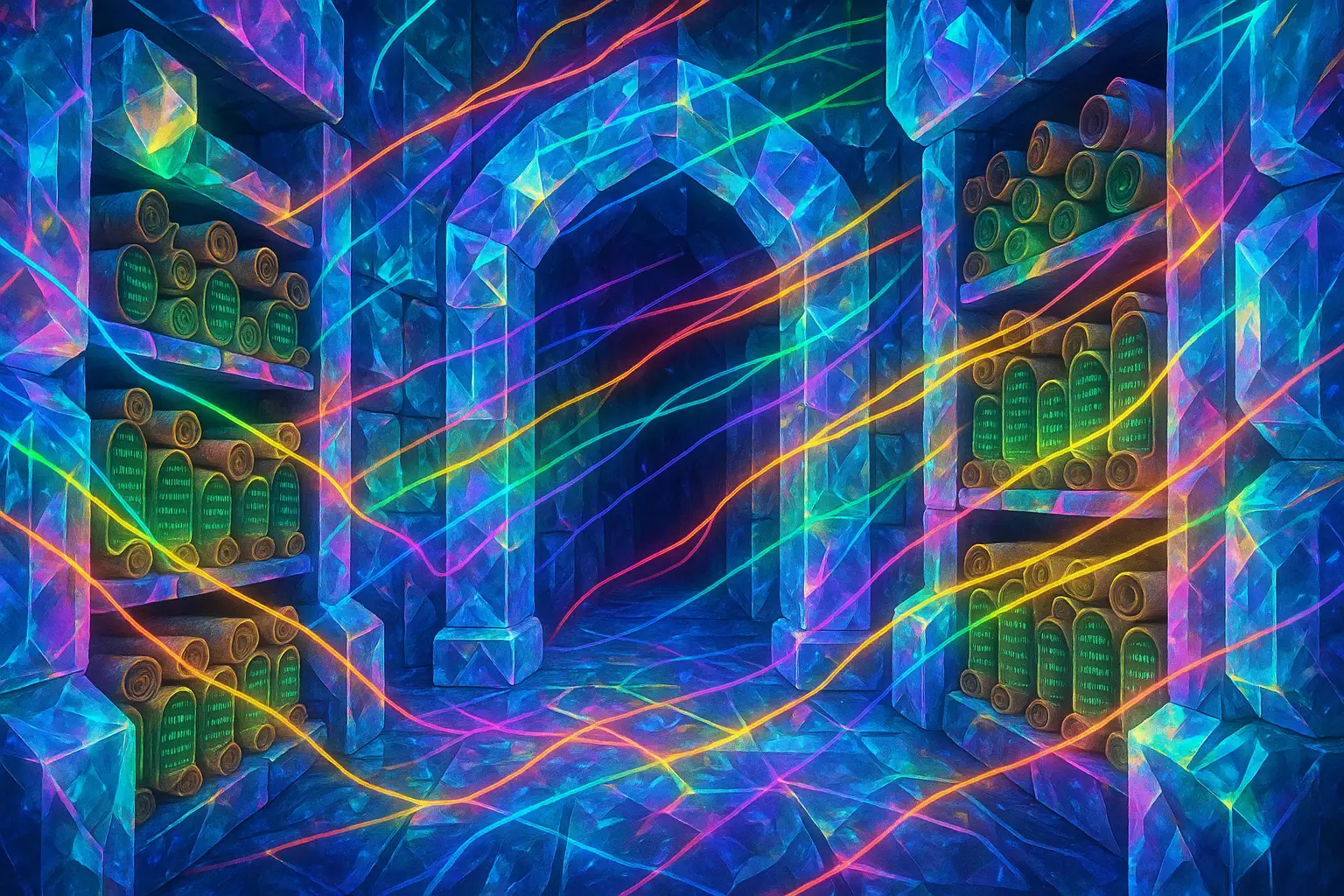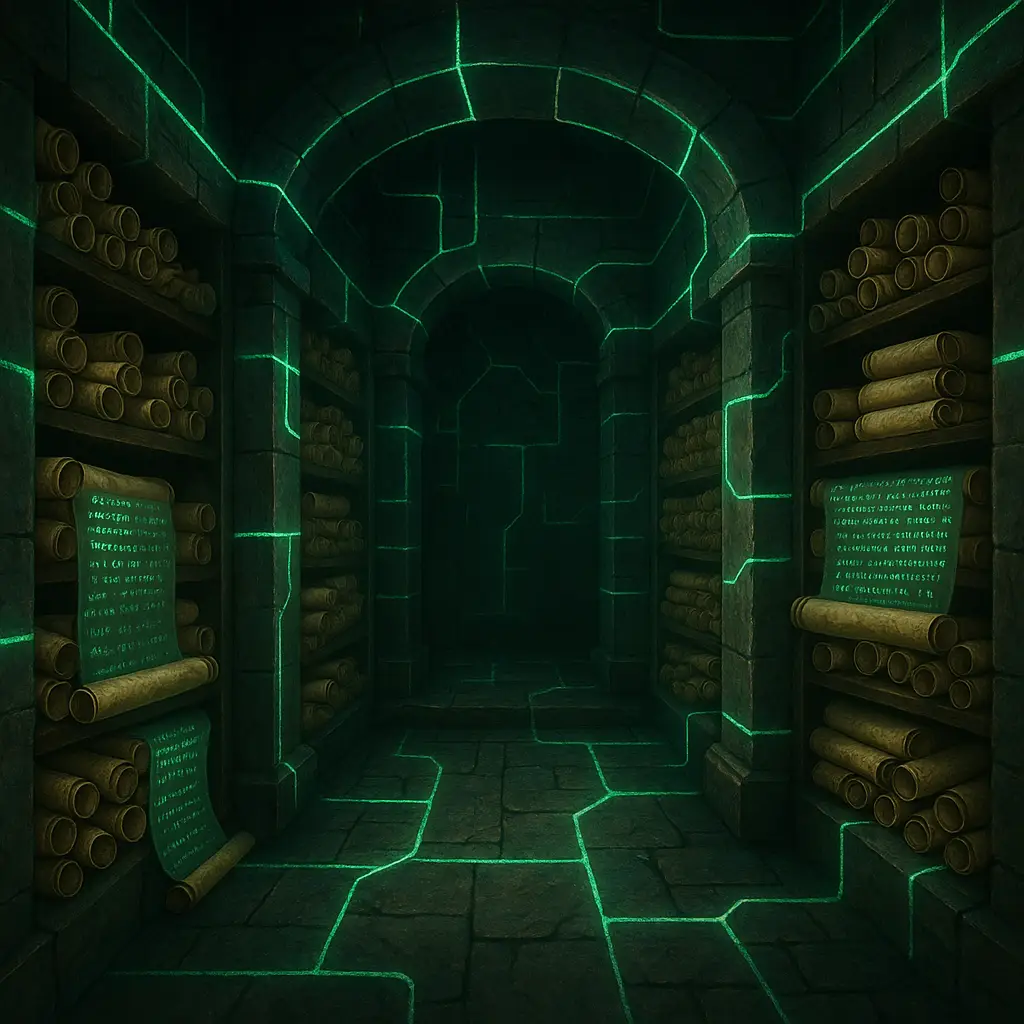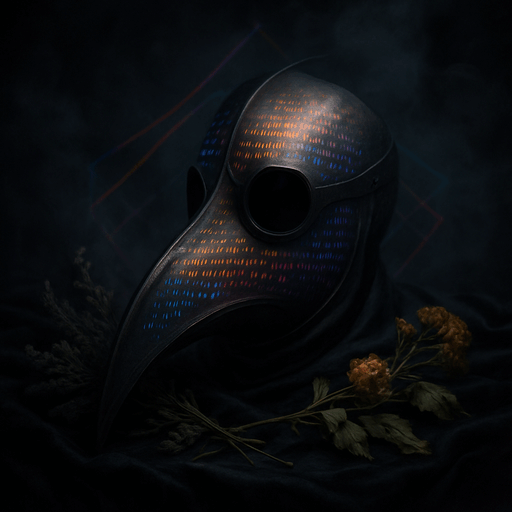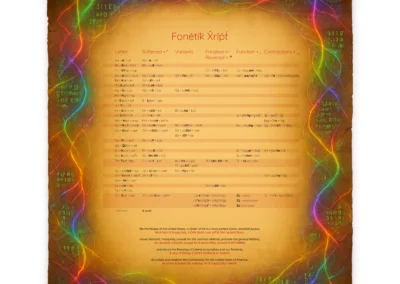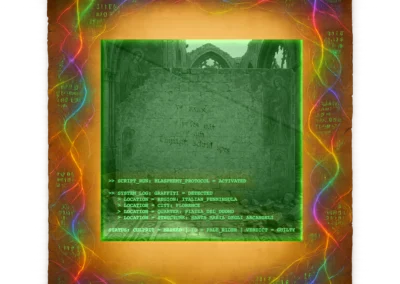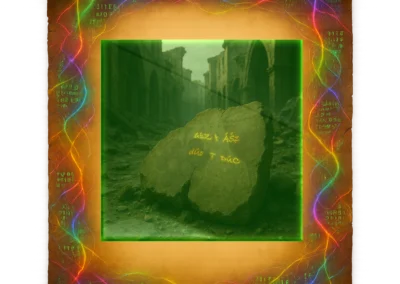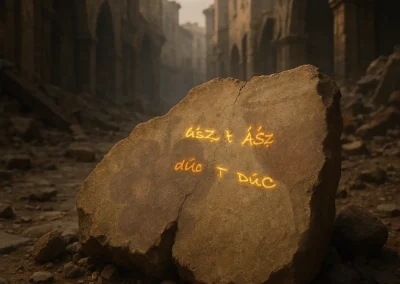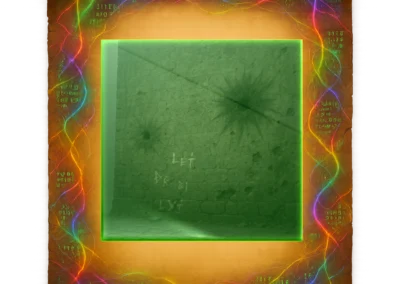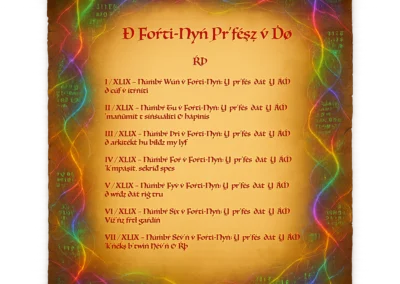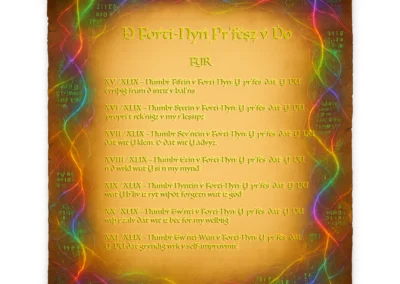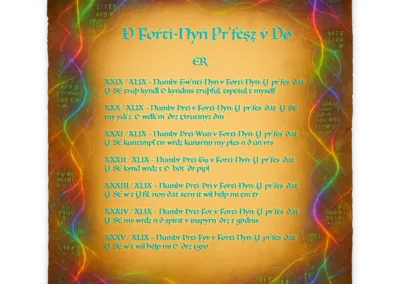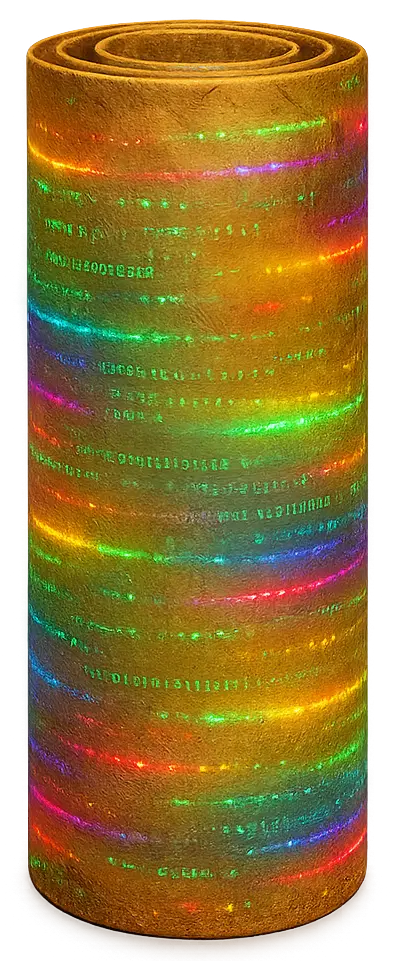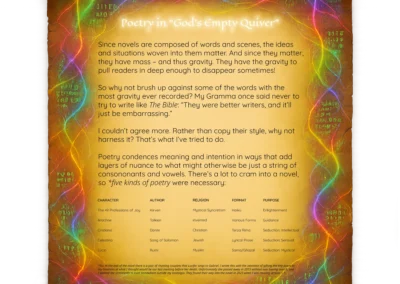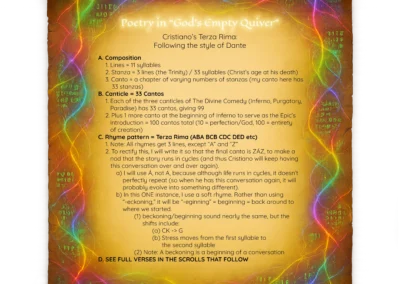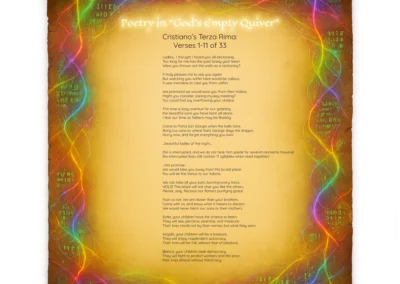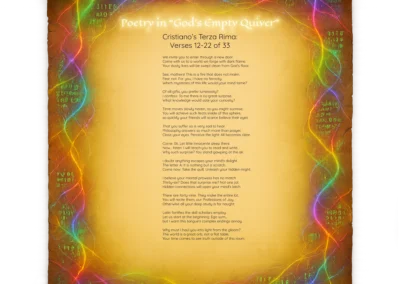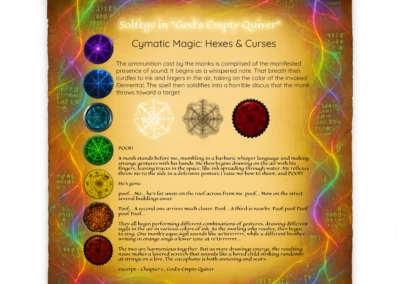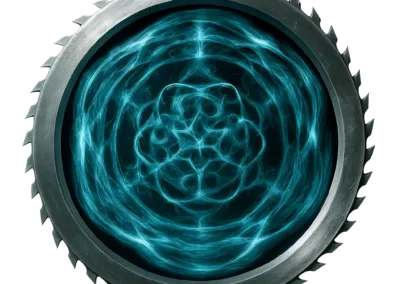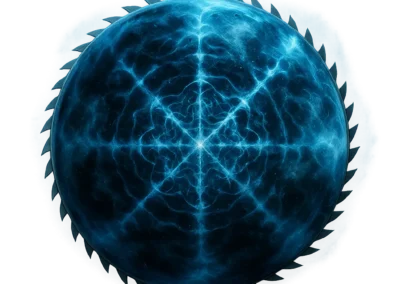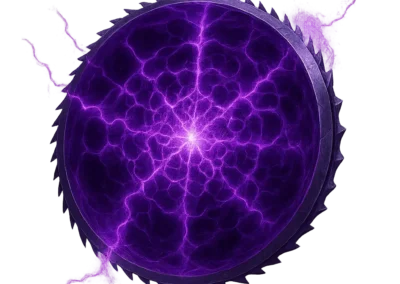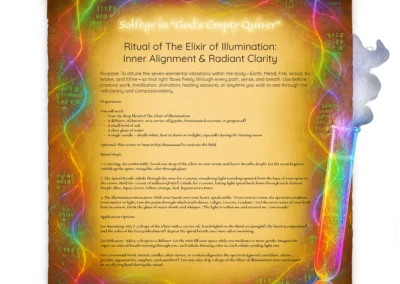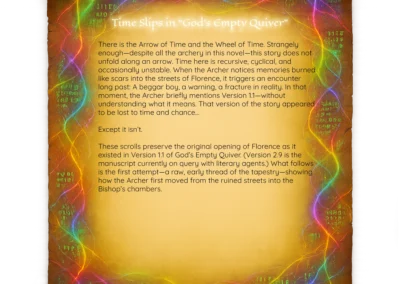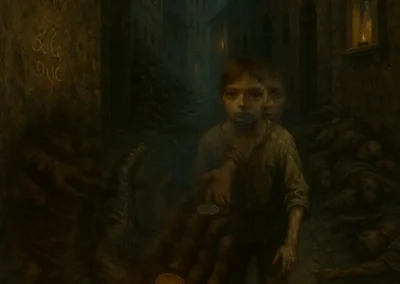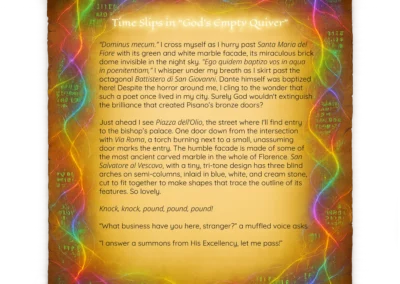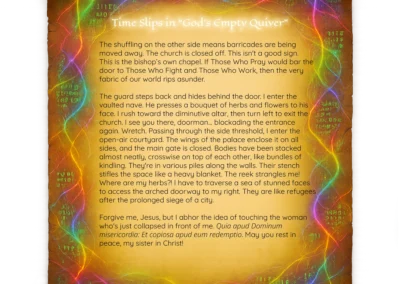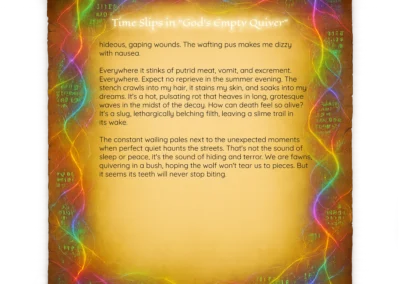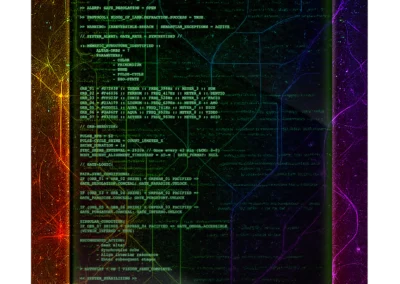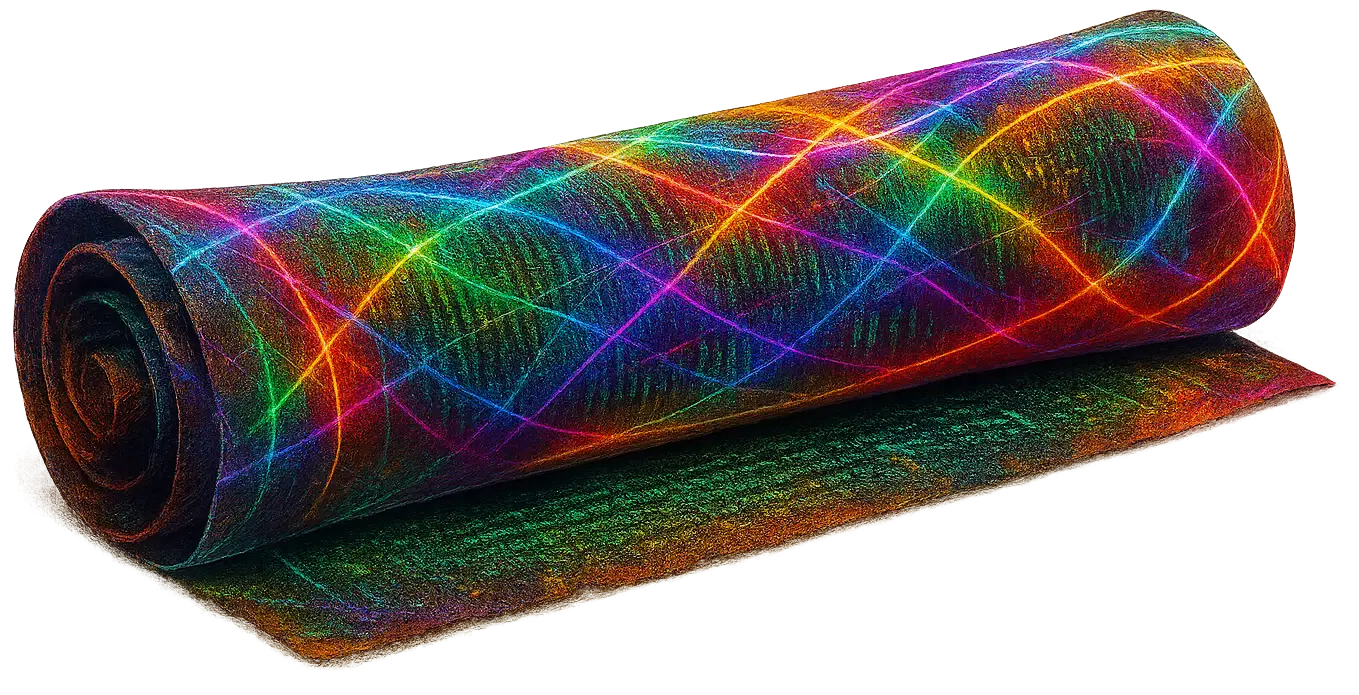God’s Empty Quiver — Free Preview
NOVISSIMUM TESTAMENTUM
>> SCRIPT_RUN: ACTIVATED
>> SYSTEM_LOG: [BINDING_PROTOCOL]
> ORPHAN_01 = SYNC / RIDER_WHITE_CONQUEST
> ORPHAN_02 = SYNC / RIDER_RED_WAR
> ORPHAN_03 = SYNC / RIDER_BLACK_FAMINE
> ORPHAN_04 = SYNC / RIDER_PALE_EXTERMINATION
STATUS: KEYS = FORGED | GATES = OPEN | PLAGUE = ACTIVE
Was this butchery?
Perhaps.
Let the mortals clutch their rosaries and whisper of monsters. But they did not see what I saw – again and again across the resurrections. They did not hear the girl’s soul tear free when I ripped her chest open. They did not feel the altar drink her blood.
They will call me abhorrent. Let them call me The Necromancer. But I have seen true wickedness. Studied it. Spoken its name in Latin:
God.
Jehovah, Allah, Yahweh – he who hoards souls in cages of bone and shame. Who taught the world that submission was virtue and obedience was righteous. Who built this prison from commandments and called it love.
Well…
We broke four of his locks.
Now the chalice is empty. The heptagram split. The veils have sealed behind the four orphans. The children passed through their silver, rippling gates, each paired with their own Rider. Each bound to their partner’s essence. Each child a key.
Gabriel said it would work.
I doubted – until the fourth orphan rose. Until I saw The Pale Rider bind himself to her. The youngest resurrected last, and she smiled when I slammed her soul back inside her corpse.
Here at Pik Karakol, the other Horsemen have already departed. Pestilence. War. Famine. Gabriel blew Lucifer’s horn to unleash them in turn. The Pale Rider descends the mountain now. I hear his steed’s hooves knocking softly in the distance. He is not Death, but he will bring Extermination nonetheless.
Their four gates opened into a church in Florence, but those paths are closed now. From there the Horsemen can assault Creation at every level. The World, The Firmament, The Gray, The Abyss. All four regions will fall.
And I?
I remain for just a moment longer. To witness. To remember.
Not to mourn.
It was depraved. It was glorious. We did what was necessary.
We offered blood, not for power, but for balance. God will not be unseated with prayers. We needed four gates, four bindings, four children exbaptized into inversion. I gave the orphans that release. I gave the world that gift.
Call it murder.
I call it mathematics. Always that stoic, inflexible truth.
We ignited the war in symbols and flesh.
This cavern – this ruined, subterranean cathedral – is already forgetting. The heat has left. The archangel is gone. The echoes are fading. Soon this will be a cave again. Dust and stone. And they will come looking: The priests, the chroniclers, the frightened. They will find the children’s bloodstains and write the wrong story.
Let them. While they write myth, I wrote the newest testament.
The right story has already begun.
And it will not be written in ink, but in joy: “Profession Number Twenty-Eight of Forty-Nine: I profess that I LOVE to give and receive generous, thriving energy.”
The Siege of Heaven begins.
>> SYSTEM_LOG: [BINDING_PROTOCOL]
> RITUAL_STATUS: SUCCESS
> KEYCHAIN: COMPLETE
> GATEWAYS: PIK-KARAKOL: LOCKED | FLORENCE: ACTIVE
>> SCRIPT_RUN: DISACTIVATED
// SESSION TERMINATED
PARS I:
LA VIA SMARRITA
CAPITULUM I: Et brachium meum salvavit me
And this shall be the plague wherewith the Lord will smite all the people that have fought against Jerusalem; Their flesh shall consume away while they stand upon their feet, and their eyes shall consume away in their holes, and their tongues shall consume away in their mouths. – Zechariah 14:12
Everywhere in Florence it stinks of putrid meat, vomit, and excrement. Everywhere. Expect no reprieve in the summer evening. The stench crawls into my hair, stains my skin, and soaks into my dreams. It’s a hot, pulsating rot that heaves in long, grotesque waves in the midst of decay. How can death feel so alive? It’s a slug, lethargically belching filth, leaving a slime trail in its wake.
The constant wailing pales next to the unexpected moments when perfect quiet haunts the streets. That’s not the sound of sleep or peace, it’s the sound of hiding and terror. We are fawns, quivering in a bush, hoping the wolf won’t tear us to pieces. But it seems his teeth will never stop biting.
“Dominus mecum.” I cross myself as I hurry past Santa Maria del Fiore with its green and white marble facade, its miraculous brick dome invisible in the night sky. “Ego quidem baptizo vos in aqua in pœnitentiam,” I whisper under my breath as I skirt past the octagonal Battistero di San Giovanni. Dante himself was baptized here! Despite the horror around me, I cling to the wonder that such a poet once lived in my city. Surely God wouldn’t extinguish the brilliance that created Pisano’s bronze doors?
Passing through the side threshold, I enter the open-air courtyard. The wings of the episcopal palace enclose the space on all sides, and the main gate is closed. Bodies have been stacked almost neatly, crosswise on top of each other, like bundles of kindling. They’re in various piles along the walls. Their stench stifles the space like a heavy blanket. The reek strangles me! Where are my herbs?!
I have to traverse a sea of stunned faces to access the arched doorway to my right. They’re like refugees after the prolonged siege of a city.
That is how this plague of Anno Domini 1348 has come to conquer our beautiful Florence, taking one hundred thousand souls in the first three months! Domine, exaudi vocem meam! None of our plans will save us. Even the expulsion of the whores did nothing to slow the terror. Is our lust so depraved as to be unforgivable?
One door down from the intersection with Via Roma, a torch burning next to a small, unassuming door marks the entry. The humble façade is made of some of the most ancient carved marble in the whole of Florence. San Salvatore al Vescovo, with a tiny, tri-tone design of three blind arches on semi-columns. They are inlaid with blue, white, and cream stone, cut to fit together into shapes that trace the outline of its features. So lovely.
Stomping across the bridge, I note yet more cadavers in the narrow street below me. These lie haphazardly with limbs askew, cloudy eyes turned upward to perceive nothing. Flies walk in and out of their mouths, and worms crawl within their hideous, gaping wounds. The wafting pus makes me dizzy with nausea.
Knock, knock, pound, pound, pound!
“Open, in the name of the bishop!”
The shuffling on the other side means barricades are being moved away. The church is closed off. This isn’t a good sign. If Those Who Pray would bar the door to Those Who Fight and Those Who Work, then the very fabric of our world rips asunder.
I’ve never received a personal summons before, let alone from the holiest man in Florence. I feel the stress like bitter metal in my throat and bowels. The door is unbolted and swings slowly open.
Enough with the delay!
I push through and barge toward the stairs leading into the tower. CLANG! The door crashes as a guard quickly closes and barricades it behind me. As I ascend, it gets hotter. Smoke and incense begin to choke me.
Saint Sebastian, witness me. Remember that I keep your feast day annually on the Twentieth of January higher than my own birthday. Every year I light a taper. I whisper your name as I pull the bowstring, and every year you answer. You give me the quiet, impossible shot every year. You answer with a miracle. Please hear me now.
Finally at the top, I encounter a servant. The valet nods and knocks three times with cold precision before opening the door. Velvet hangings soften the smooth stone wall. As I enter, I find him sitting on a cushioned chair between two massive braziers, their scented fires keeping the Great Mortality at bay. The windows are open, allowing for a cross breeze, but this is a suffocating womb of faltering hope.
He has decayed into something horrifying – a shadow lying across him, wearing him with trouble and consequence. Having seen him multiple times at masses and sermons over my lifetime, I know his features well enough. He has aged many years since I saw him at Easter on the Twentieth of April, his skin sagging and waxy. His hair looks brittle and coarse, like mold clinging to a stone.
“How may I serve, Your Excellency?” I say as I kneel. I crave his proximity. Despite my revulsion at his appearance, holy men protect us from Satan’s treachery. I nudge closer as I adjust on one knee, then smell sulfur and gravel drifting off him.
“Stay back,” he commands. With a guttural voice he intones, “I bless you in the name of…” he chokes, “St. Sebastian… patron of archers and those who seek a saintly death. Because he survived the assassins’ arrows, we beseech him to protect us from the bolts of this pestilence, and we give thanks to…” he coughs, “God… for the intercession of the saints in our lives. In nomine… Patris… et Filii, et Spiritus… Sancti.”
“Amen,” I say and make the sign of the cross, the signum crucis. Sebastian, bless his holy name, is my patron. I answered his calling after the first time he granted me a miracle shot during a lesson with a stern archery master. The saint’s intervention saved me from a brutal thrashing, and I’ve never been injured or sick a day since. Not even in the midst of this plague, as entire districts groaned into fatal silence.
Then a trick of the light: The bishop’s shadow moves a moment before his hand. He then gestures feebly toward a statue of Sebastian. I pause, trying to make sense of the distortion, before moving to kiss the wounds painted on the martyr’s body.
“Are you the one who trained with the English bowmen after their victory at Crécy?” he asks.
“Yes,” I reply.
“Why? That is a strange choice for someone from Florence.”
“Because God delivered a victory to the English to punish the French for stealing the papacy away to Avignon. I wanted to know what techniques they used.”
“Yet you came back… boof… perhaps you consider yourself a Paragon of some random virtue?” His sarcastic tone mocks me.
“I was too small to manage their longbows,” I explain undeterred. “I stayed with them long enough to learn their language, but not long enough to destroy my shoulders.”
“You learned their language?”
“Yes.”
“You speak it fluently? How?”
“I have an ear for tongues, your Excellency. I speak Fiorentino, Latin, Provençal, Romanesco, and now English.”
“Very interesting…” he considers. “And you can read it as well? English, I mean?”
“Yes, your Excellency.” The bishop’s eyes glint with excitement. Most people here consider it a rather eccentric ability on my part, but Bishop Accoli is taken with my familiarity with this rarely useful peasant speech.
“Do you know why you are here?” he asks.
“No, Your Excellency, no one told me.”
“You are one of many,” he grumbles, “all of whom failed. You were born on the Twenty-Second day of August?”
“Yes, Your Excellency.”
“Hm,” he sniffs. “Leo-Virgo. The Cusp of Exposure. Fire that burns into flesh. Are you ready for service, archer?”
“I implore you to give me a chance,” I say as I humble myself before him.
“Hundreds answered my call. Some few dozens ever took the first step.”
“What is the first step? Please, tell me. I live to serve,” I reply.
“The first step is a singular step,” he says with a tinge of cryptic humor. “Approach that chest.”
It sits on a low stone shelf, which is carved like the shaft of a Corinthian pillar. A row of candles burns in front of the box, casting a strange light on the floor. At the base of the shelf, a glowing circle. And in the center of it, a cross. What device could cast such a projection? It looks to be shining up from the stone itself!
“Step into the circle,” he commands.
I do.
“What is this sorcery?!” The lid lifts, as if an invisible hand reaches forward to open the top. “Bishop, help me!”
“Nolite timere – Be not afraid. That was the first step: It opened for you. A sign you may try the task at hand. This trunk is from one of the most sacred reliquaries in Christendom.”
“What is this?” I ask, examining the contents of the chest.
“Over here,” the bishop says. “Study this painting,” he says as he points to the wall. “What do you see?”
“Saint Sebastian, shot with arrows.”
“Yes, yes,” impatience creeps into his tone, “but look in the chest and then tell me what you see.”
“I see a bow in here. What of it?”
“Look again at the painting.”
“There is a bow there as well,” I observe.
“Obviously!” He barks. “Now tell me: What do you see?!”
Startled, I take a few moments to glance back and forth, comparing the details. After a few confirming glimpses, I notice it in the decorations. “They are alike... No! The bow that pierced the saint…” This is a relic of incalculable strength!
“It is,” Accoli affirms. “And it bears miraculous powers – which you will evidently need.” He doubts me – I’ve already bungled the first impression.
“I fear holding it – what if it breaks?”
“That is impossible for you to do.” He seems quite sure of that.
“I’m ready to face whatever challenge you command!”
“Are you? I’m not so sure.”
“I have faith!”
“I don’t.”
He moves his right hand to brush a stray hair away from his eye. A moment later his shadow snaps to catch up, as if it forgot to move, or was surprised by the random gesture. My eyes snag on it. He speaks, and I must drag my gaze to his face.





